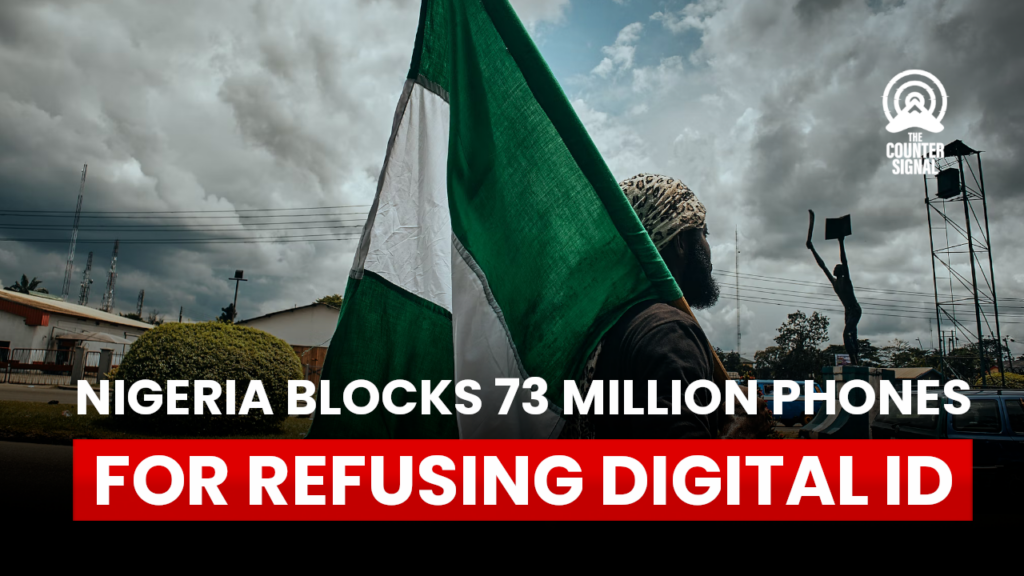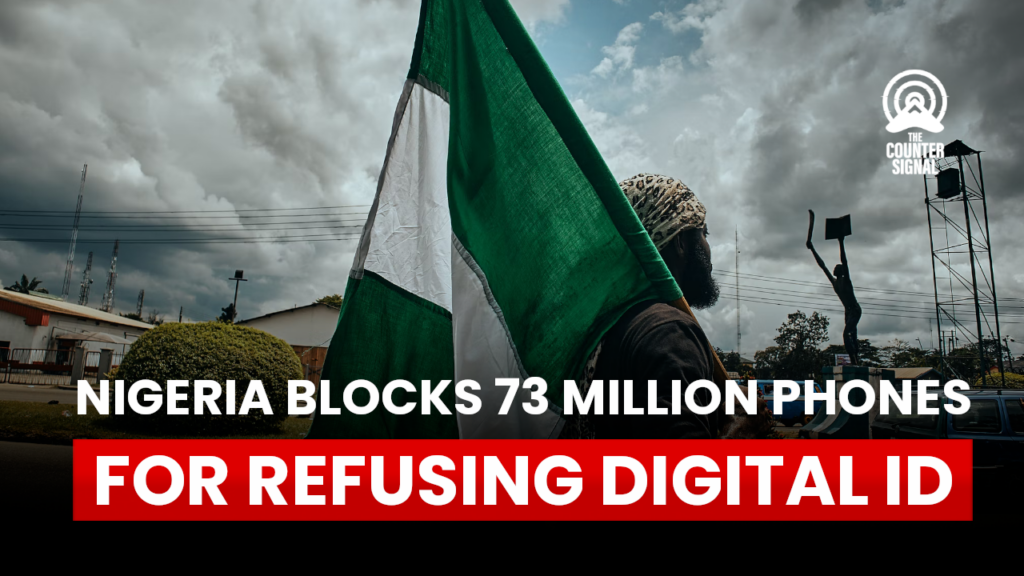Seventy-three million Nigerians have had their phones blocked from making calls as punishment for not registering their phones to the Nigeria Digital ID database.

“The Federal Government has directed all Telcos to strictly enforce the Policy on all SIMs issued (existing and new) in Nigeria,” the Nigerian government stated in a news release.
“Outgoing calls will subsequently be barred for telephone lines that have not complied with the NIN-SIM linkage Policy from the 4th of April, 2022. Subscribers of such lines are hereby advised to link their SIMs to their NINs before the Telcos can lift the restriction on their lines.”
There will be trouble ahead. https://t.co/N6nLpqzthN
— Maajid أبو عمّار (@MaajidNawaz) April 23, 2022
The Digital national identity number (NIN) has been in effect for several years in Nigeria and is required to get a driver’s license or open a bank account. However, only now do citizens have to link their phone’s SIM to their Digital ID.
The deadline had been extended multiple times before the government finally clamped down on their citizens for not complying.
Many citizens in Nigeria are reluctant to register due to privacy concerns, while the government claims it’s necessary for them to track emerging security issues in the country.
Currently, those who’ve been banned from making calls have adopted a side-door strategy by using apps such as WhatsApp to make calls. This tactic isn’t totally reliable, though, as it requires Wifi or cell data.
The push for a Digital ID in Nigeria is truly radical and speaks to an underlying agenda to have citizens linked to one playing out worldwide.
Indeed, Canada is in the midst of its own Digital ID experiment, though the government hasn’t stooped to this level of coercion.
Alberta and Ontario already have rolled out a Digital ID system, and Saskatchewan recently shelved its plan to roll one out. Saskatchewan MLA Jim Reiter admitted that negative public feedback was one of the reasons for pausing.
“There [were] enough people raising concerns that obviously you have to make that a factor,” he said.
To learn more about why a Digital ID is so dangerous, check out The Counter Signal’s deep dive on the issue.












